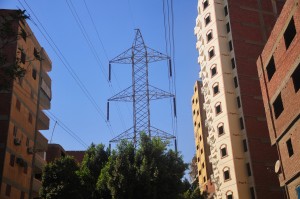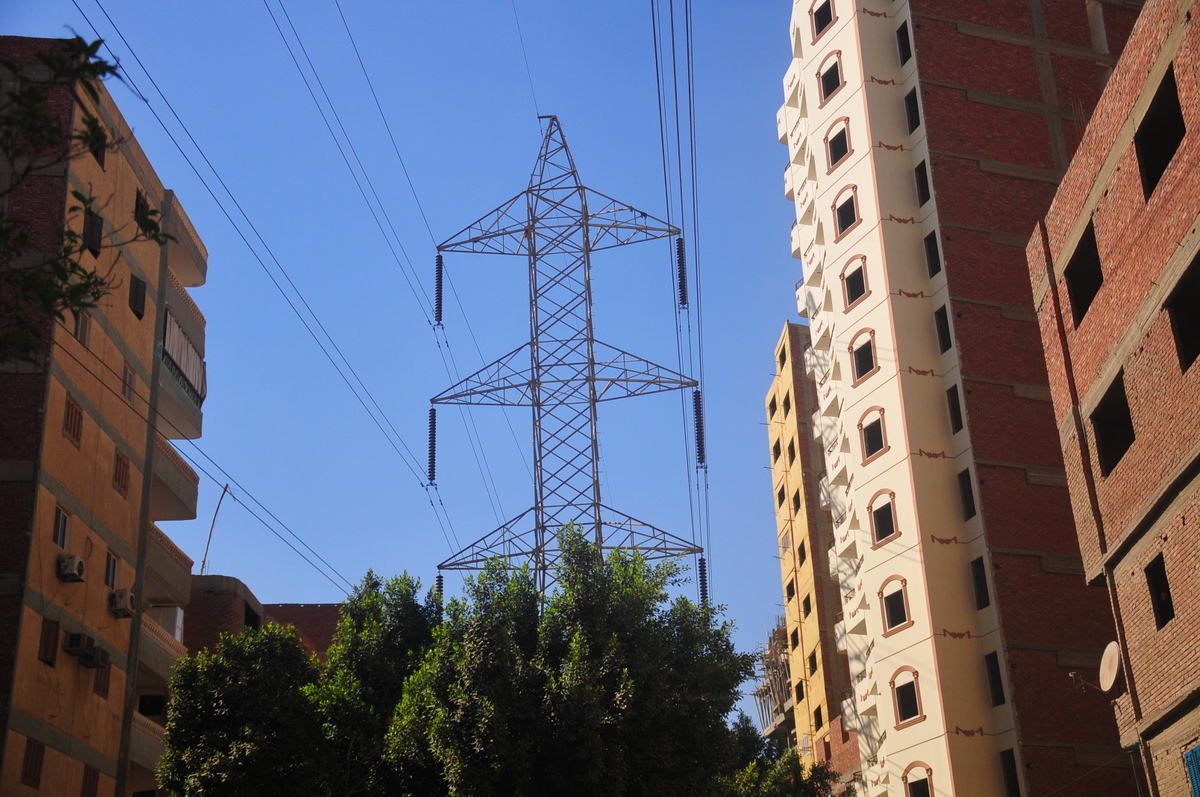
(Photo by: Hassan Ibrahim)
By Salih Al-Manufi
Ahmed Imam, Egypt’s Electricity and Energy Minister, recently stated that electricity subsidies are set to increase over the coming fiscal year to EGP 23bn, which will also include the cost of fuel used to operate electricity production stations.
He went on to say that Egypt’s electricity grid was currently operating at 86% capacity, one of the highest in the world, producing 26,000 megawatts of energy per year as opposed to its maximum potential rate of 30,000 megawatts per year. This comes slightly below the country’s 2012 production rate, which totaled 27,000 megawatts.
He further pointed to the newly operational Abu Qir production station, which will contribute upwards of 1,300 megawatts of energy per year to Egypt’s national grid, but noted that operations had temporarily ceased at three production stations in the Banha, North Giza and Ain Sokhna regions.
These statements came during a symposium organised by imams and preachers from Egypt’s Ministry of Endowments, attended by a total of 55 religious leaders, engineers and businessmen. The symposium was held after a recent inspection tour was completed of an electricity production station located in the North Cairo province.
Notable guests included Gaber Al-Dasuqi, President of the Egyptian Electricity Holding Company, Gamal Abd Al-Sitar, First Undersecretary of the Ministry of Endowments, Muhammad Al-Shaykh, President of the Cairo Electricity Production Company, and Aktham Abu Al-Ala, Undersecretary of the Ministry of Electricity.
Al-Dasuqi, speaking on behalf of Dr. Imam, said that the country’s imams and preachers could play a large role in helping citizens to understand and appreciate the need to scale back electricity consumption, saying that such a discussion at mosques could potentially be framed within a religious context.
He further pointed to the need to crack down on the theft and sale of electricity on the country’s black market, which has effectively cut the ministry’s revenues from the sale of electricity to below 80% of expected income, making it difficult for the government to pay back loan premiums to fund the construction of additional production stations.
He discussed the possibility of reining in the ministry’s monthly spending on electricity to EGP 1.8m a month, or one fifth the current rate. Spending rates could especially be cut he said, if one took into account the fact that global electricity prices in British Thermal Units (BTUs) were currently $14 per million, while the Ministry of Electricity and Energy acquired energy at $15 per million BTUs.
Al-Dasuqi further stated that personal home consumption of electricity represented 43% of the country’s total usage, compared to 32% for Egypt’s industrial sector, an abnormal ratio by global standards. He went on to state that the opposite should be true, pointing out that Egypt possesses 44,000km of high voltage power lines, in addition to 500,000 medium to low voltage lines.
He was followed by Gamal Abd Al-Sitar, who highlighted the potential for the nation’s imams and preachers to help influence citizens to change their consumption patterns, noting that the Ministry of Endowments had recently released a statement forbidding mosques to consume electricity during morning hours, and calling for the replacement of traditional filament light bulbs located throughout facilities with more energy efficient versions.
Ahmed Tubar, Advisor to the President of Egypt’s Cabinet Information and Decision Support Center, reinforced the idea that all mosques and places of worship, in addition to people’s homes, would be targeted as part of an electricity consumption reduction campaign.
Such a campaign would be launched and organised from within three of the centre’s main headquarters, which would then serve as a model for other government buildings and institutions as to how best to efficiently use and consume electricity.



